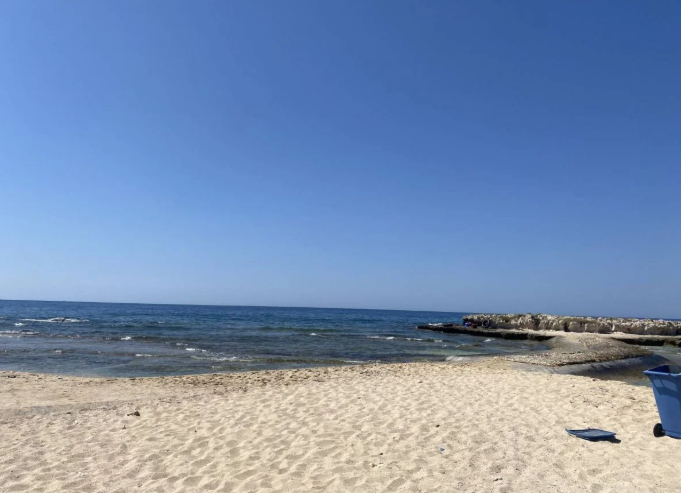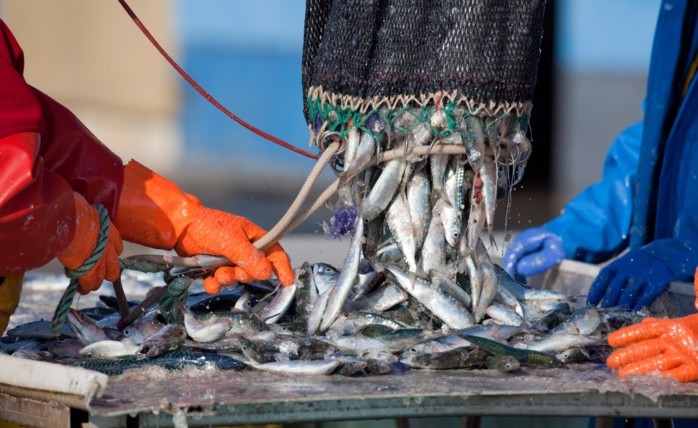A special report on coastal climate risks in the Mediterranean region highlights multisectoral solutions to enhance resilience in these countries, including Lebanon.
Mediterranean countries, particularly those in the East, are expected to suffer more intensely from the impacts of climate change compared to other parts of the world. Overpopulation in the south, coastal economic activities, mass tourism, and more contribute to the additional pressure on these countries’ adaptive capacities, compounded by conflicts and poor resource management.
“The Mediterranean coastline is one of the world’s regions with the highest probability of composite flooding (sea level rise), the effects of which will be exacerbated by climate change and population growth along the coast,” notes a report on coastal climate and environmental risks in the Mediterranean, launched on November 18 during COP29, the UN climate summit held in Baku, Azerbaijan. The report was written by 55 authors from the Medecc (Mediterranean Experts on Climate and Environmental Change), under the auspices of the Union for the Mediterranean (UfM), the United Nations Environment Programme (UNEP), the Barcelona Convention, and the Blue Plan.
According to the report, one of the most dramatic consequences of this warming is the rise in sea levels, already at 2.6 millimeters per year (twice as much as in the 20th century), which could displace 20 million people by 2100. « Ocean heat waves, whose frequency and duration have increased by 40% and 15%, respectively, over the past two decades, promote carbon emissions and the emergence of non-native tropical species, which in turn have various ecological and socio-economic impacts on the Mediterranean, » the report states.
« Projections show an increase in surface air temperatures, more frequent and intense heat extremes, sea level rise, evapotranspiration, and a decrease in precipitation, depending on future greenhouse gas emissions, » explains Salpie Djoundourian, one of the coordinators of the project representing Lebanon, to L’OLJ.
Climate change is expected to pose serious risks to ecosystems as well as various economic activities such as agriculture and fishing, she continues. It is also expected to worsen the water scarcity already affecting 180 million people around the Mediterranean. Alongside these water shortages, there are energy insecurity (due to dependence on imported fossil fuels in most countries), food insecurity (also due to reliance on imports), and ecosystem risks (from both climate change and poor practices).
The World’s Largest Plastic Pollution
Poor resource management leads to pollution of water, air, and soil, reaching the coast, including the most significant plastic pollution in the world. « Plastic waste accounts for 82% of visible trash, 95 to 100% of all floating marine debris, and over 50% of marine debris on the seafloor in the Mediterranean Sea, » it highlights.
The eastern Mediterranean countries suffer particularly from endemic problems that hinder efforts to adapt to climate change.
Improving Resilience in the Eastern Mediterranean
To improve the resilience of Mediterranean populations, particularly in the East, to climate change, the Medecc report recommends solutions that consider the interlinkages between the water, energy, food, and ecosystems sectors (WEFE or « Water, Energy, Food, and Ecosystems Nexus »). « Any measure taken to address climate change should take into account the synergy between these four sectors, » the expert emphasizes. This approach is relatively more expensive in the short term due to necessary investments in technological innovations and nature-based solutions, but it yields more effective results in the long run.
While technology and science provide partial solutions to this pollution, they would not be sufficient without green investments (based on respect for nature), institutional reforms, economic and financial tools (such as new taxes, for example), or awareness campaigns for societal behavioral change. « All these options would be based on the four pillars of WEFE, » she stresses.
What About Lebanon?
What about Lebanon? « The war (between Hezbollah and Israel from October 2023 to November 2024) and the multiple crises (socio-economic, political, and institutional) have affected Lebanon’s ability to cope with the consequences of climate change, » emphasizes Salpie Djoundourian. She praises the vitality of the private sector, which has provided innovative solutions through affordable solar-based technologies, as well as efforts in innovative agricultural practices, the introduction of alternative food sources (such as non-native fish species), and others. « However, the successful implementation of transformative and global solutions requires essential reforms in governance to foster an investment-friendly environment and trust in the rule of law, » she concludes.
Source: l’orient le jour




